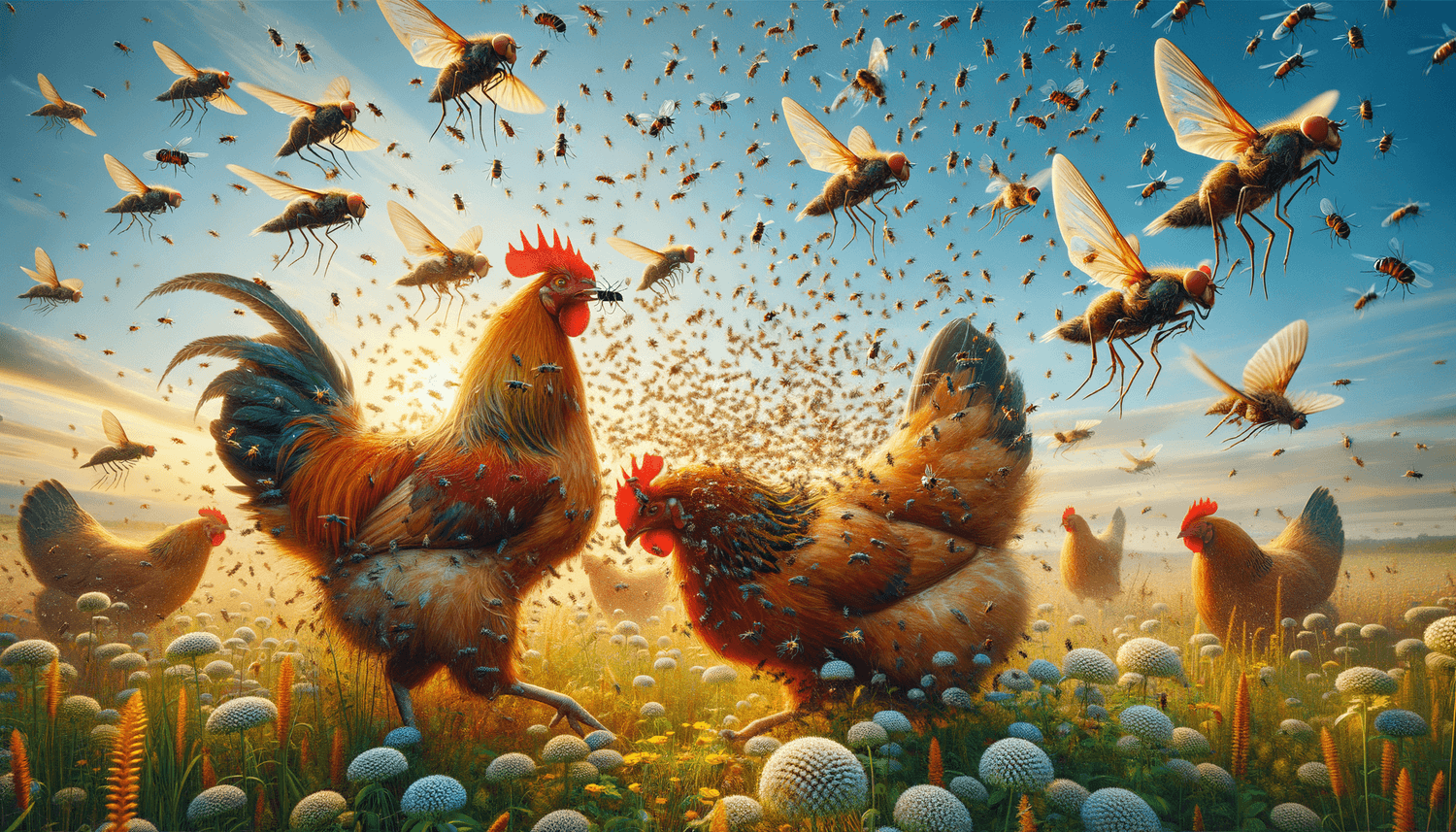If you’re a backyard chicken enthusiast, it’s not uncommon to find yourself pondering the menu options for your beloved flock. You may have wondered, “Can chickens eat flies?” – after all, they’ve got those scrumptious wings, right? In this infectiously fun blog post, we’re going to give you the buzz on whether chickens can actually chow down on these tiny critters, explore the role of a balanced diet for your feathery friends, and discuss the benefits and/or risks, nutritional value, and even how to dish up delicious “fly snacks” for your peckish poultry pals. So let the clucking begin!
Can chickens eat flies?
Yes, chickens can eat flies and it is generally safe for them. Chickens are natural foragers and insectivores, and they love to snack on flies and other insects, which can provide them with essential proteins and nutrients. Keep in mind, however, that it’s important to maintain a balanced diet for your chickens, so flies should be considered more of a delightful treat rather than a primary food source.
The importance of a balanced diet for chickens
Just like humans, chickens need a balanced diet to maintain good health and performance. This is especially important for laying hens, who require specific nutrients and energy for producing eggs. A chicken’s diet should primarily consist of a high-quality chicken feed, which provides all the necessary vitamins, minerals, and nutrients that your birds need to thrive.
Chicken feed should make up around 80-90% of their diet, as it’s packed with the essential ingredients required for their growth, development, and overall well-being. The remaining 10-20% of their diet can consist of treats, such as fruits and vegetables, to add variety and enjoyment. These can also offer additional vitamins and minerals that go a long way in keeping your chickens happy, healthy, and productive.
Nutritional value of flies for chickens.
Feeding flies to chickens can offer some nutritional benefits, as these insects are a natural source of protein, vitamins, and minerals. In the wild, chickens are known to be voracious insect consumers, and adding flies to their diet can help provide some variety while keeping them entertained as they engage in their natural foraging behaviors.
Flies contain a good amount of protein, which contributes to the growth and repair of tissues in your chickens, as well as assisting in maintaining healthy feathers and the production of delicious eggs. Furthermore, insects, including flies, can provide essential amino acids and fatty acids to help support a healthy chicken.
While flies don’t provide significant sources of hydration or other major benefits, they can still contribute positively to the overall well-being of your chickens. It’s important to remember that flies should not be the primary food source for your flock, but they can serve as a tasty and beneficial treat in moderation.
Nutrition table of flies for chickens.
| Information | Description |
|---|---|
| Nutritional Value | Provides protein, some vitamins, minerals, essential amino acids, and fatty acids |
| Suggested Serving Size | Offer in moderation as treats, not as primary food source |
| Safe Feeding Practices | Supplement with high-quality chicken feed and ensure a balanced diet |
| Preparation | No preparation needed, chickens will naturally hunt and eat flies |
| Potential Risks | Overconsumption may lead to nutrient imbalances; some flies may carry diseases |
| Hydration | Flies do not provide significant hydration; ensure adequate water supply separately |
| Digestion | Chickens can easily digest flies, as they are natural insectivores |
| Seasonal Availability | Flies are more abundant in warmer seasons; availability varies depending on location |
| Other Benefits | Helps satisfy chickens’ natural foraging instincts and adds variety to their diet |
Attracting and controlling flies for chickens
If you’re interested in providing flies as a treat for your chickens, you can create a fly-friendly environment in your chicken coop or run. This can be done by hanging flytraps near your chicken’s living area or even building a DIY insect hotel to encourage a variety of insects, including flies, to occupy the space. However, it’s essential to maintain a balance and ensure flies do not become overwhelming or lead to unhealthy conditions in your chicken coop.
Alternatives to flies
While flies are a natural and enjoyable snack for your chickens, there are other nutritious and delicious insects that can offer similar benefits. Some popular options include mealworms, crickets, and earthworms. These insects also provide an excellent source of protein, vitamins, minerals, and can help satisfy your chicken’s foraging instincts.
In conclusion, while chickens can safely eat flies and benefit from the nutritional value they provide, it’s important not to rely on them as a primary food source. A balanced diet consisting of high-quality chicken feed should be the main focus, with flies and other insects serving as supplemental treats. By doing so, you’ll ensure your chickens maintain good health, productivity, and happiness, while enjoying the variety and stimulation that these tiny snacks offer.

















